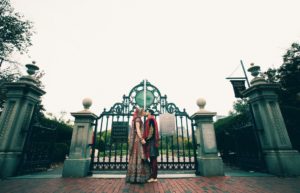Our country is a melting pot of different cultures and religions. So, it’s extremely common for a bride and groom to come from two very different backgrounds.
If you’re getting married to someone with different traditions and beliefs than you then it’s important to have a real conversation about your wedding plans. You need to find out what’s important to them and their family. Where are they willing to compromise and what is nonnegotiable?
After this conversation you’ll be able to proceed in one of three ways.
SCENARIO #1:
If you and your partner identify with different religions but only one of you practice and have strong ties to your faith then you’ll likely agree to a ceremony that speaks to that partner’s beliefs.
That is what we did for Jenny and Saurabha.
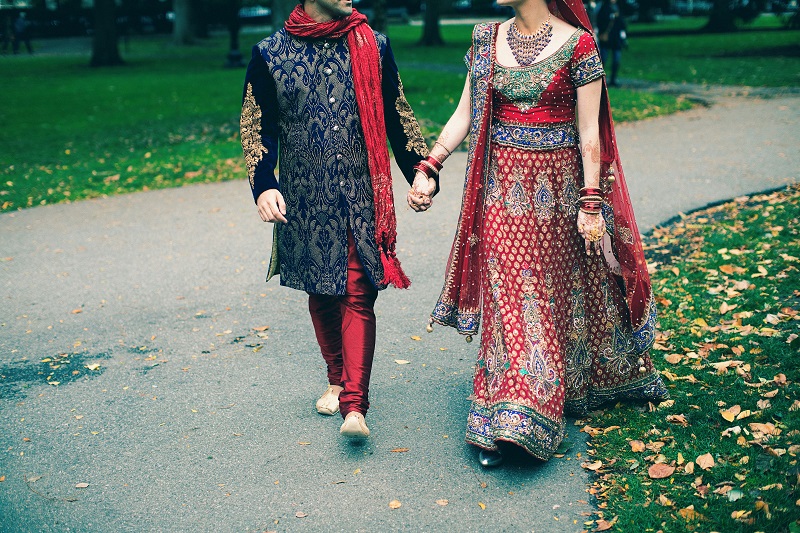
Jenny didn’t feel strongly about any particular religion while Saurabha and his family really wanted a Hindu ceremony.
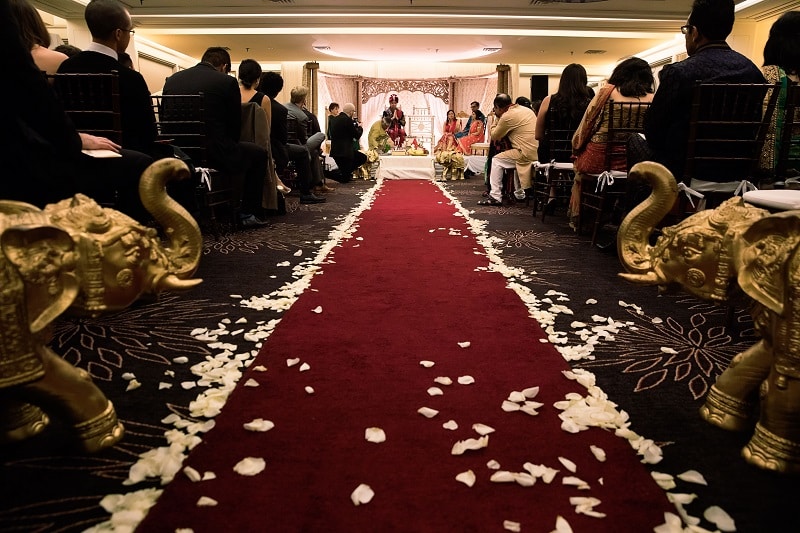
So, we planned a traditional Hindu ceremony for Saurabha and incorporated more western traditions throughout the day for Jenny. One of those traditions was a first look before the ceremony.
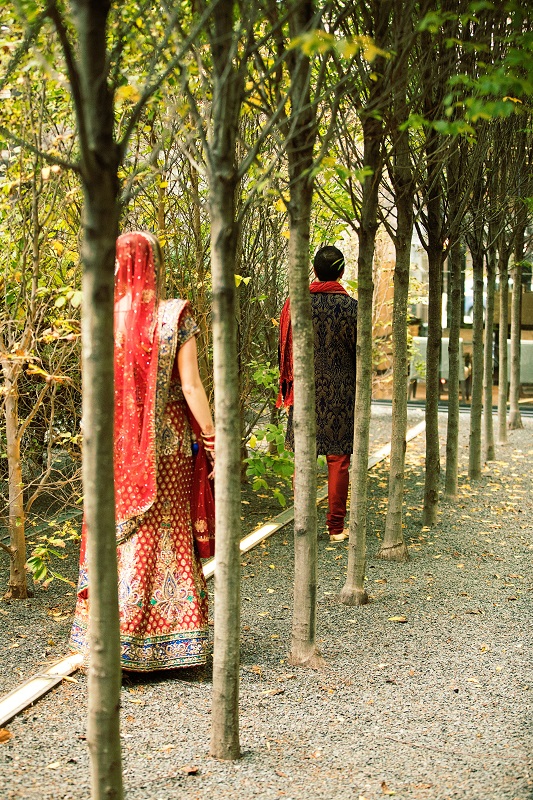
SCENARIO #2:
However, if both you and your fiancé feel equally connected to your separate religions but are willing to compromise and integrate your traditions then we can create a unique and personalized ceremony just for you.
The first step to creating one combined ceremony is finding an officiant who understands your vision. You need someone who is open to blending the two religions and incorporating different traditions into one ceremony.
That is just what we did for Elisha and Neil.
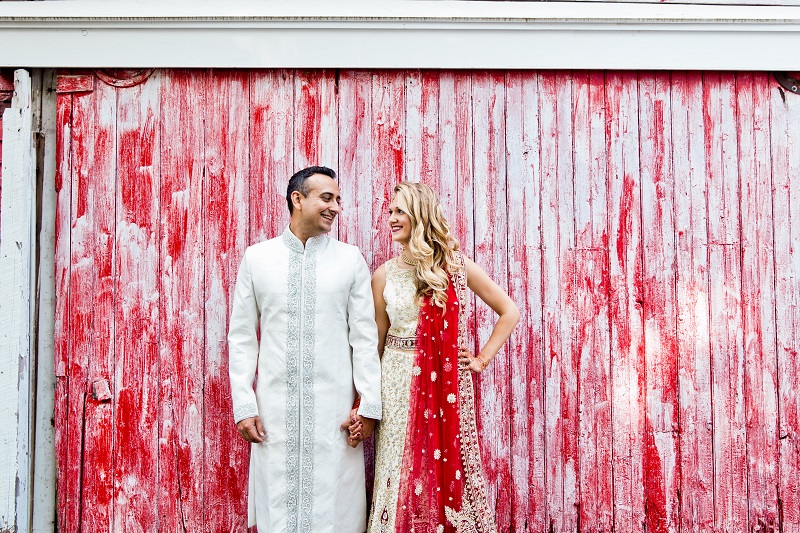
It was important to Neil’s family that they have a traditional Hindu ceremony but it was important to Elisha that we include western traditions like exchanging rings and walking down the aisle. The couple came to an agreement, found an officiant who was open to their vision and planned a wedding ceremony that worked for them both.
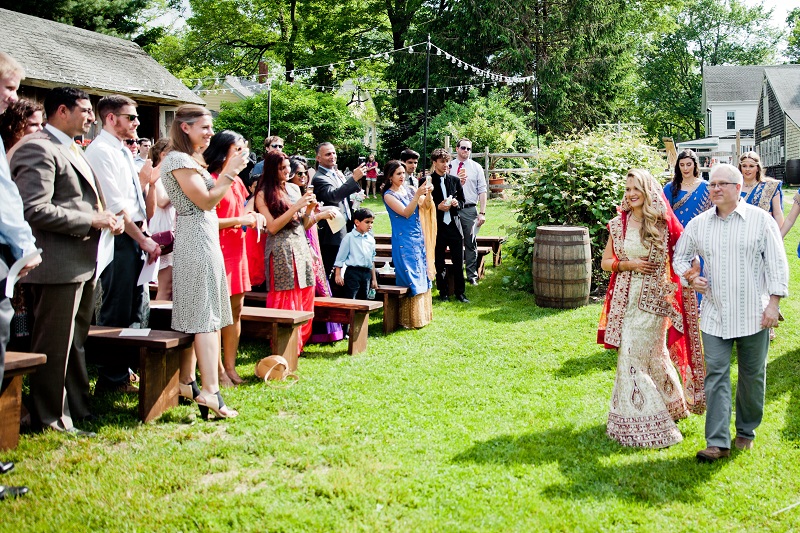
SCENARIO #3:
Blending your beliefs to create one personalized ceremony is great! However, if you and your partner come from two backgrounds that are difficult to merge then it’s okay to have two separate ceremonies.
We’ve seen this with a bride who was Greek Orthodox and a groom who was Jewish. They had a Greek Orthodox ceremony the night before the reception and then a Jewish ceremony right before the party the following day.
We’ve also been part of a Catholic and Hindu wedding where they had a traditional Hindu ceremony in India and a church ceremony here in New England.
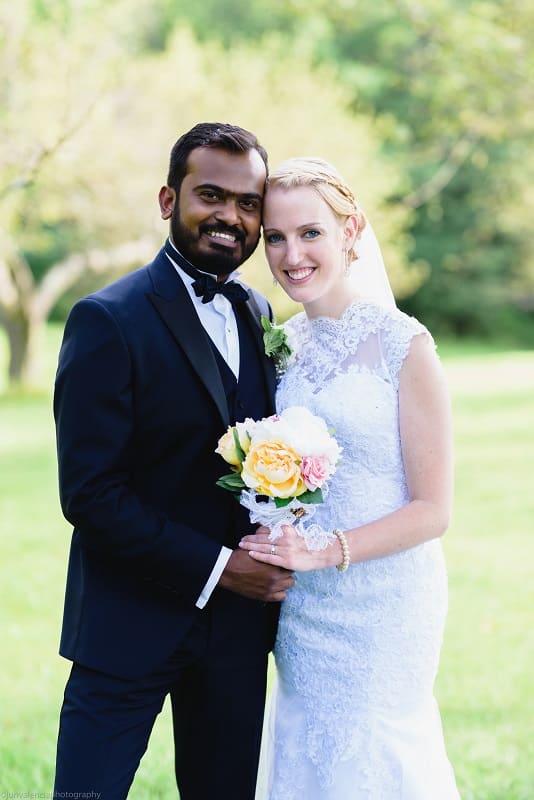
In the end, it’s all about what you and your fiancé are comfortable with. So, talk to your partner and determine which scenario is best for you.
